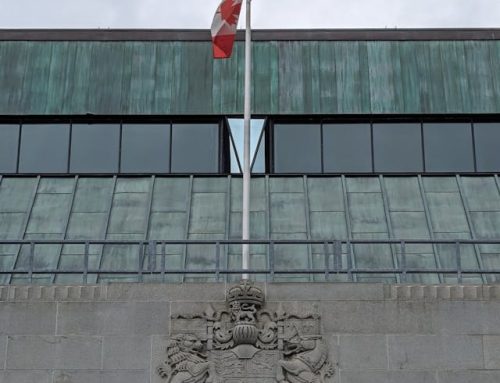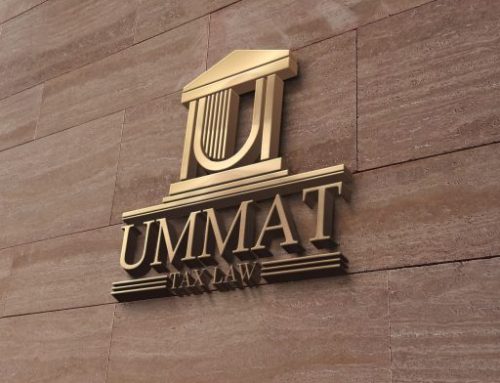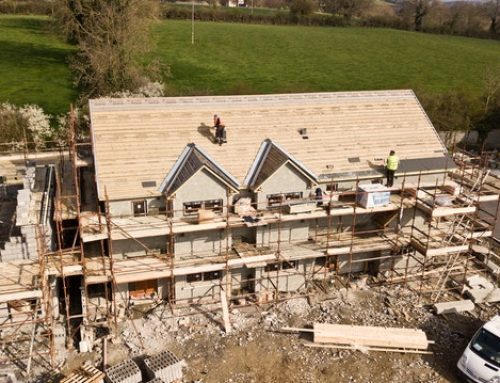Dutch Company a Canadian Resident for Tax Purposes
Decision Here
Landbouwbedrijf Backx B.V. v. The Queen 2019 FCA 310
Summary
In this Federal Court of Appeal (“FCA”) decision, the Court reviewed the Tax Court’s (“TCC”) determination of the Appellant’s residency for tax purposes. The Appellant was a company originating in the Netherlands but with its de facto control seemingly in Canada. The TCC applied the common law test of central management and control to find that the Appellant was a resident of Canada and therefore liable to Part I tax. The FCA found no errors in this finding but did conclude the TCC erred on other grounds and sent the matter back to the TCC on those bases.
Background
The Appellant (“LBBV”) is a company incorporated under the laws of the Kingdom of Netherlands. LBBV was assessed a capital gain stemming from the disposition of a partnership interest in a dairy-farm operation located in Ontario. The main issue at the TCC was whether LBBV could be considered a resident of Canada for tax purposes in 2009 and therefore liable to pay Part I tax on the capital gain arising from the disposition of its partnership interest in that farm.
LBBV was incorporated in 1997 by Michiel Backx and Marian Backx (the “Backxes”) who were spouses of one another and residents of the Netherlands. The Backxes immigrated to Canada in 1998. Before moving to Canada, the Backxes resigned as directors of LBBV and appointed a family member resident in the Netherlands as director of LBBV. The Backxes remained as shareholders.
Upon arriving to Canada, the Backxes purchased a dairy farm in Ontario. The transaction was structured such that the Backxes personally owned a 51% interest and LBBV owned the remaining 49% interest. From 1998 to the 2009 taxation year, LBBV filed tax returns as a non-resident and paid taxes on its share of the income.
In 2009, the Backxes incorporated “Backx Dairy Farms Limited (“Backx Limited”). They transferred their 51% interest in the farm to Backx Limited. Shortly thereafter LBBV also disposed of its interest in the farm to Backx Limited. Following the closing, Backx Limited wrote to the Minister to disclose the transaction pursuant to subsection 116(5.02) of the Income Tax Act (“Act”) and its position that the partnership interest was “treaty‑protected property” pursuant to subsection 116(6.1) of the Act. In issuing the assessment, the Minister took the position that the partnership interest was not “treaty‑protected property” and proceeded to assess LBBV under Part I (and Part XIV) of the Act.
Position of Parties
LBBV argued that it is was resident of the Netherlands based on the common law rule that a corporation’s residence is to be determined based on the location of its central management and control. Therefore, it was not liable to Part I tax. To support this position, LBBV argued that it was incorporated in the Netherlands, the sole director was resident in the Netherlands, its bank accounts were in the Netherlands and it filed as a non-resident in Canada for years.
The Minister’s position was that LBBV was a resident of Canada because its central management and control was in Canada. Notwithstanding LBBV being registered and incorporated in the Netherlands, it was managed and controlled by the Backxes in Canada. Furthermore, the sole director in the Netherlands (Mrs. Backxes’ sister), was only performing administrative tasks and was not able to do anything material without the input of the Backxes in Canada.
Legal Test
The TCC acknowledged that the relevant common law test was to determine the ‘central management and control’ of the entity to determine residency. Usually, central management and control will be found where the board of directors is. But in this case, the director, although resident in the Netherlands, was not performing the actual directorial duties of LBBV. Her remuneration was nominal. She paid bills and executed and delivered financial documents to advisors pursuant to explicit instructions form the Backxes in Canada. Ultimately, the evidence was that she was a mere nominee of the Backxes. Therefore, the real decision-making occurred in Canada. Justice Smith found that LBBV was a resident of Canada since the Backxes were the central management and control, and they were in Canada. This resulted in LBBV being subject to part I tax.
Federal Court of Appeal
At the FCA LBBV alleged that the TCC erred a) by finding it was a resident of Canada b) when it determined that subsection 128.1(1) of the Act was not triggered and c) in its application of Article 4(3) of the Canada/Netherlands Treaty.
Residency
The Court found that the evidence before the trial judge supported the finding that the shareholders in Canada were the decision-makers, and not the director situated in the Netherlands. LBBV raised the argument that since the Minister had taxed and assessed a decade of filings by LBBV on the basis it was a non-resident, he was now estopped from arguing that LBBV was a resident of Canada. The FCA disagreed. The FCA relied on the legal principle that the doctrine of estoppel cannot be involved to preclude the exercise of a statutory duty.[1] No error was found in the TCC decision regarding LBBV’s residency.
Subsection 128.1(1)
The question here was whether the TCC erred when it found that the Canadian residency determination did not result in a deemed disposition under subsection 128.1(1) since, in the TCC’s view, there was no evidence that LBBV actually ceased to be a resident of the Netherlands or was continued under Canadian law.
Subsection 128.1(1) is triggered once the taxpayer becomes a Canadian resident. Paragraph (b) of the subsection indicates that, with certain exceptions, a taxpayer is deemed to have disposed of all their property immediately before entering Canada for proceeds equal to fair market value. Paragraph (c) calls for a deemed reacquisition of the property at the same fair market value figure. This process establishes a new cost basis for the taxpayer’s property, as at the time of entering Canada. The goal here is to avoid having Canadian taxation apply to gains that accrued prior to the taxpayer’s immigration or entry into Canada.[2]
The FCA agreed with LBBV’s submission that subsection 128.1(1) addresses the situation where a taxpayer becomes a resident of Canada, and that there is no additional requirement that the taxpayer must cease to be a resident of its former State. The TCC thus erred by determining that subsection 128.1(1) was not triggered due to the lack of evidence that LBBV had ceased to be resident of the Netherlands.
Article 4(3)
Article 4(3) of the Canada/Netherlands Treaty reads:
Where by reason of the provisions of paragraph 1 a person other than an individual is a resident of both States, the competent authorities of the States shall endeavour to settle the question by mutual agreement having regard to its place of effective management, the place where it is incorporated or otherwise constituted and any other relevant factors. In the absence of such agreement, such person shall be deemed not to be a resident of either State for the purposes of Articles 6 to 21 inclusive and Articles 23 and 24.[3]
LBBV argued that since the competent authorities had not settled the question, it was not a resident of either the Canada or the Netherlands. Rather than examining the issue, the TCC found that since LBBV was a resident of Canada for tax purposes, that the Treaty did not have any bearing on the tax appeal. This was an error “…because if the Convention provides an exception or relief to the appellant, it would take precedence over the Act. The TCC did not apply and consider the provisions of the Convention to the facts of this case.”[4]
Ruling
The Court referred the matter back to the TCC in light of the reasons given. Costs were awarded to LBBV. Notable however is that the FCA did in fact find that there was no error committed by the TCC in finding LBBV was a resident of Canada for tax purposes. As a practical matter, it is unclear what exactly will be resolved when the matter returns to the TCC.
Call Ummat Tax Law for advice and representation on residency matters.
[1] Ludmer v. Canada, [1995] 2 F.C. 3, at paras. 2, 9 and 17.
[2] Landbouwbedrijf Backx B.V. v. The Queen 2019 FCA 310 (“LBBV FCA”), at para. 18.
[3] Convention Between Canada and the Kingdom of the Netherlands For the Avoidance of Double Taxation and the Prevention of Fiscal Evasion With Respect to Taxes on Income
[4] LBBV FCA, at para. 29. It is important to note that In the event of any inconsistency between the provisions of the Convention and any other domestic law, the provisions of the Convention prevail (Acts of the Parliament of Canada, Canada-Netherlands Income Tax Convention Act 1986, Chapter 48, Part I, section 4).




